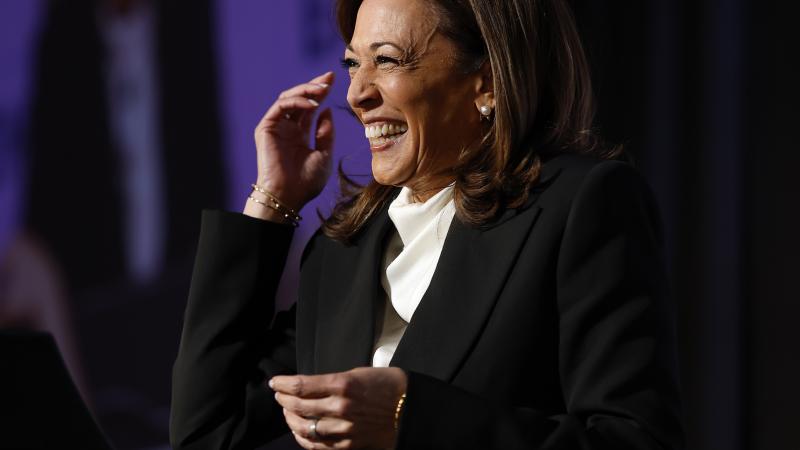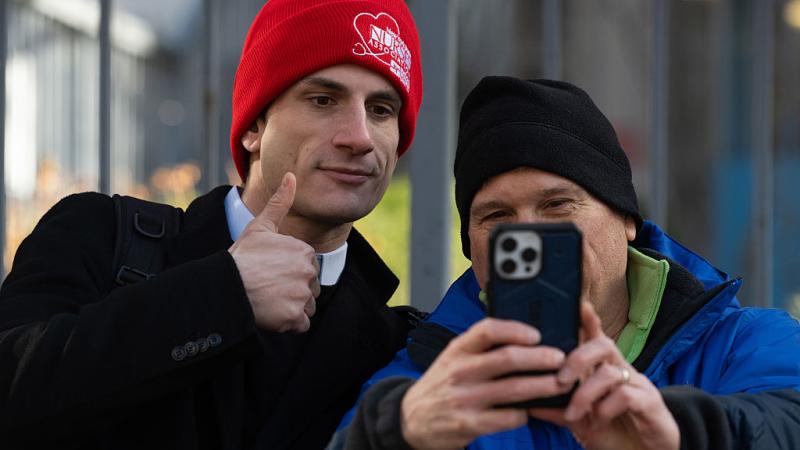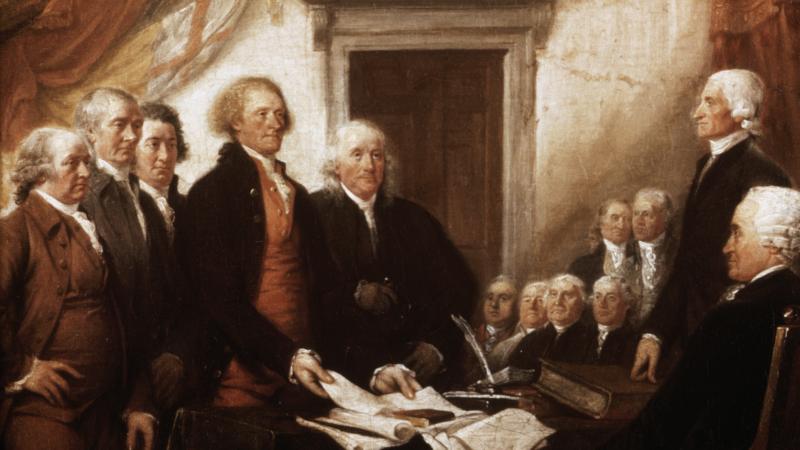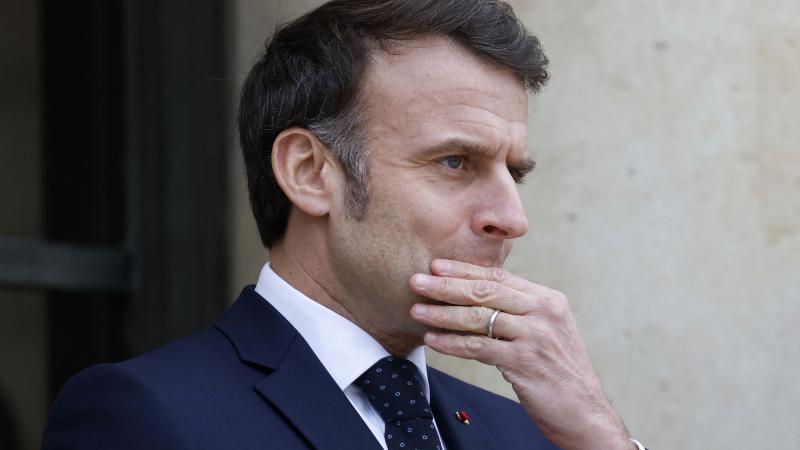Clinton campaign manager who spread Trump-Alfa Bank story involved in DHS election censorship
Robby Mook's Harvard project was "civil society collaborator" in consortium that targeted news organizations, members of Congress for purported election misinformation.
During the 2016 election, Hillary Clinton's campaign manager helped spread the Russia collusion narrative, one of the most impactful disinformation campaigns in American electoral history. Four years later, a group he co-founded was involved in the federally backed censorship machine against purported 2020 election misinformation.
Robby Mook cofounded the Defending Digital Democracy Project (D3P) at Harvard University's Belfer Center in 2017 and remained a senior fellow there through the 2020 election, becoming a Belfer Center senior fellow in summer 2021. He's also an adjunct lecturer in the Harvard Kennedy School.
D3P participated in the Election Integrity Partnership, a private consortium founded "in consultation" with the Department of Homeland Security's Cybersecurity and Infrastructure Security Agency.
Mook's project was among several left-of-center "[c]ivil society collaborators [who] submitted tips through the trusted partner tip line and interacted with the EIP research team through briefings, partner meetings, and shared findings," according to the consortium's after-action report.
On the table that shows how often collaborators were tagged in misinformation "tickets," D3P came up just behind the Democratic National Committee, the most partisan group the consortium brought on as a collaborator.
The misinformation reports to tech platforms including Twitter, Facebook, TikTok and Google had a 35% success rate in getting flagged content removed, labeled or "soft-blocked," the consortium said. Just the News was among several news organizations caught in this dragnet, which also targeted congressional members and candidates.
Before he cofounded D3P, Mook was an integral player in the false Russia collusion narrative and the disproven claim that then-candidate Donald Trump had a secret communications channel with Vladimir Putin routed through Moscow-based Alfa Bank.
As Clinton's 2016 campaign manager, Mook testified in this summer's criminal trial of former campaign lawyer Michael Sussmann that Clinton approved taking the allegation of a covert Trump Organization-Alfa Bank hotline to the press.
The trial ended with Sussmann's acquittal on a charge of lying to the FBI, but it exposed the inner workings of how the false Alfa Bank story was promoted by the Clinton campaign to both the FBI and the news media.
Special Counsel John Durham revealed that Sussmann was working at the time on behalf of two clients, the Clinton campaign and then-Neustar tech firm executive Rodney Joffe.
As a witness for the defense, Mook testified during cross-examination that Clinton approved of going to the media with the allegation of a secret hotline linking the Trump Organization with Alfa Bank.
The former Clinton campaign manager said he then authorized a campaign staffer to go to the press with the story. Mook admitted that the campaign wasn't "totally confident" in the allegation and decided to give the information to a reporter so they could look into it and decide whether to publish it. He claimed that he didn't view this as an "October surprise," a term that he called a "myth."
On cross-examination by the prosecution, Mook was asked for the date of Clinton's tweet of the campaign statement in response to the Slate article on the Alfa Bank allegation. He said it was Oct. 31, 2016.
Mook said that he learned of the allegation from Perkins Coie law partner Mark Elias, whom the campaign had retained as outside general counsel. He added that he didn't know of Sussmann during the course of the campaign, or that Perkins Coie had engaged Fusion GPS to do opposition research for the campaign.
The ex-campaign manager said that he wouldn't have wanted anyone to go to the FBI regarding the Trump-Russia allegation, as he didn't trust the bureau following then-FBI Director James Comey's statements about the Clinton email investigation.
Mook didn't answer Just the News queries through the Belfer Center or his Kennedy School email about his role in the consortium's misinformation reporting and the appropriateness of D3P's involvement, given his role in spreading the Trump Organization-Alfa Bank hoax.
The Belfer Center didn't answer queries about its knowledge of Mook's involvement in the hoax when it promoted him to senior fellow of the center itself last summer.
"Like most of what Just the News has written about EIP over the last week, your implications in this email are completely false," Alex Stamos, founder of the consortium's co-lead partner the Stanford Internet Observatory and former Facebook chief security officer, told Just the News Oct. 6.
"The Defending Digital Democracy project at Harvard was not a part of the EIP, had no role in referring, analyzing or writing about our work, and nobody at DDD (including Robby Mook) played any part in our 2020 analysis of election disinformation," he wrote in an email.
Stamos didn't respond when asked to explain D3P's inclusion on the list of civil society collaborators and whether he's saying it played a purely passive role in the consortium.
Neither he nor the consortium's other co-lead, the University of Washington's Center for an Informed Public, or the consortium itself responded to Just the News queries before the question about Mook's organization. "We have responded to your other false claims" in the public statement the consortium released Oct. 5, Stamos said, but that statement does not cite what is false in Just the News reporting.
The DHS-backed consortium resembles the Chinese internet censorship described in Freedom House reports a decade ago, according to a former State Department official who was slated to be its first-ever digital freedom ambassador in a second Trump administration.
Mike Benz, whose Foundation for Freedom Online drew fresh attention to the consortium last month, told the John Solomon Reports podcast that federal officials discussed "their envy of the China model" in "internal meetings and deliberations" in 2017 and 2018.
Bureaucrats were jealous that "when there's populist movements and dissent groups within China, China has the advantage of being able to use its artificial intelligence" to squelch their dissent, according to Benz, who said such talk tapered off in late 2019.
It came back under the Biden administration, which has now set up "a bad knockoff of the Chinese model" through the DHS-backed consortium, he said.
DHS didn't answer queries for its response to Benz's claims.
The Facts Inside Our Reporter's Notebook
Videos
Links
- federally backed censorship machine
- Robby Mook cofounded the Defending Digital Democracy Project
- consortium's after-action report
- several news organizations caught in this dragnet
- targeted congressional members and candidates
- lying to the FBI
- Sussmann was working at the time on behalf of two clients
- Clinton's tweet of the campaign statement
- Slate article on the Alfa Bank allegation
















